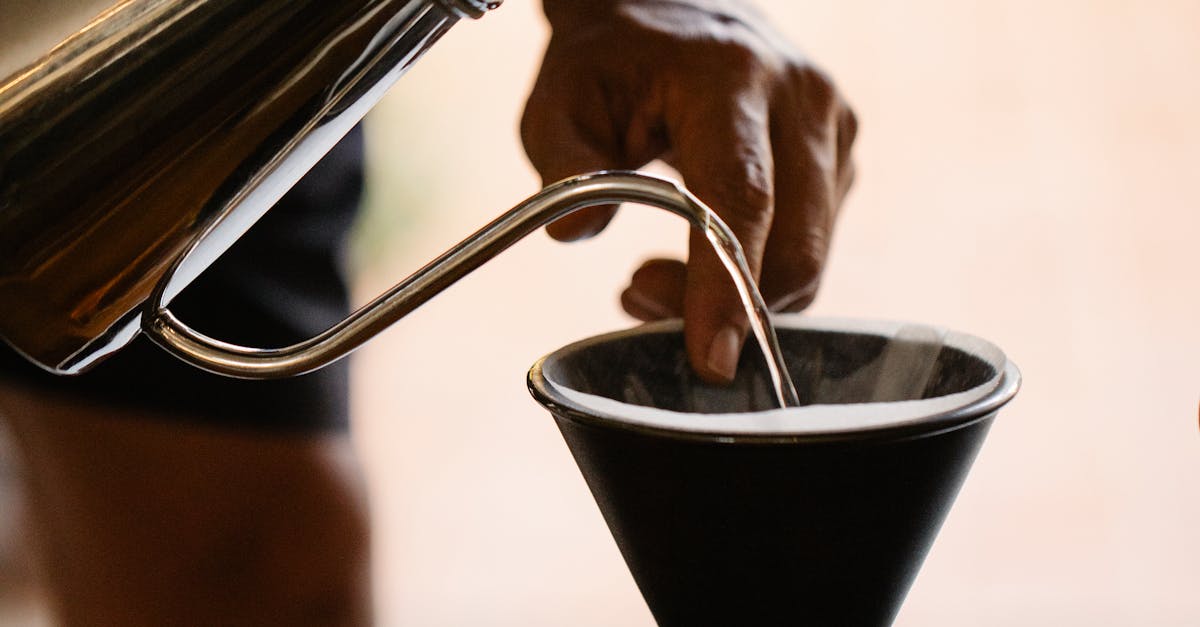
Table Of Contents
Sediment Buildup and Its Effects
Sediment buildup in a water heater is a common issue that can significantly affect performance. Over time, minerals such as calcium and magnesium settle at the bottom of the tank. This accumulation creates a barrier between the water and the heating elements, leading to inefficient heating and increased energy consumption. Regular maintenance is essential to prevent this buildup from becoming a larger issue.
When sediment thickens, it can also lead to overheating of the tank itself. The excess heat can cause damage to various components within the system, potentially leading to leaks or even complete failure of the water heater. Keeping an eye on the condition of your Hot Water System Parts and Accessories can help you proactively address sediment buildup. Regular flushing of the tank is a recommended practice to enhance longevity and efficiency.
Decreased Heating Efficiency
Decreased heating efficiency in water heaters can often be traced back to sediment buildup within the tank. The accumulation of minerals and debris can insulate the heating elements or burner, making it difficult for them to transfer heat effectively. As a result, the water heater has to work harder to achieve the desired temperature, leading to increased energy consumption and potentially higher utility bills.
Another factor contributing to decreased heating efficiency is the degradation of various components within the hot water system. Issues with electrical parts, thermostat malfunctions, or worn-out heating elements can significantly hinder the system's ability to produce hot water. It is crucial to regularly check all Hot Water System Parts and Accessories to ensure they are functioning properly, as even minor issues can compound over time, resulting in diminished heating performance.
Anode Rod Degradation
The anode rod is a critical component of a water heater, designed to prevent corrosion within the tank. This metal rod often consists of magnesium or aluminum, which attracts corrosive elements to protect the tank's interior lining. Over time, it deteriorates as it sacrifices itself to keep the tank from rusting. If the anode rod isn't replaced periodically, corrosion can accelerate, leading to leaks and ultimately reducing the lifespan of the entire unit.
Regular inspection of the anode rod is essential for maintaining your water heater's efficiency. Neglecting this component can result in costly repairs and water damage. In the realm of maintenance, understanding the importance of Hot Water System Parts and Accessories is crucial. Homeowners should be proactive in checking this part, ensuring that it is intact and functioning properly to extend the performance of their water heating systems.
Importance of Regular Inspection
Regular inspection of water heaters is crucial for maintaining optimal performance. This process helps to identify potential issues with Hot Water System Parts and Accessories before they escalate into more significant problems. When inspected routinely, components like the anode rod and heating elements can be checked for wear and tear. Addressing these small concerns early on can extend the overall lifespan of the water heater.
Many homeowners neglect their water heater’s maintenance, which can lead to unexpected breakdowns and costly repairs. Regularly scheduled checks not only improve efficiency but also enhance safety. Ensuring that all Hot Water System Parts and Accessories are functioning correctly allows for better energy conservation. This proactive approach mitigates the risk of water heater failure and ensures reliable access to hot water.
Electrical Component Failures
Electrical components within a water heater can encounter various issues that lead to system failures. Common problems include malfunctioning thermostats, broken heating elements, and issues with the power supply. When these components fail, they can disrupt the heating cycle, resulting in inadequate hot water production. Regular maintenance is essential to identify these potential failures early and to ensure the continuous operation of the water heater.
Breaker trips and wiring issues can contribute significantly to electrical failures in a hot water system. Faulty connections and worn-out wiring can increase resistance and lead to overheating. This not only risks further damage to the system but can also pose safety hazards. Proper inspection and timely replacement of Hot Water System Parts and Accessories can mitigate these risks and promote a longer lifespan for the water heater.
Breaker Trips and Wiring Issues
Breaker trips and wiring issues can be significant problems in water heaters. Electrical connections may become loose or corroded over time, leading to inconsistent power delivery. This can cause the water heater to malfunction or shut down unexpectedly. Inspecting the wiring connections is essential for ensuring that the electrical system operates smoothly. When faults arise, it may not only disrupt hot water supply but also pose safety hazards.
In addition to checking wiring, the condition of circuit breakers should be monitored. A breaker trip can occur due to overloads or short circuits related to the water heater's components. Understanding how hot water system parts and accessories, including thermostats and heating elements, interact can help diagnose electrical issues. Regular maintenance and assessment of these factors can prevent potential failures and ensure the reliability of the system.
FAQS
What are the common parts that fail in a water heater?
Common parts that fail in a water heater include the heating elements, anode rod, thermostat, pressure relief valve, and electrical components such as breakers and wiring.
How does sediment buildup affect my water heater?
Sediment buildup can decrease heating efficiency, lead to overheating, and cause damage to the tank and heating elements, ultimately shortening the lifespan of the water heater.
Why is the anode rod important for my water heater?
The anode rod helps prevent corrosion inside the tank by attracting corrosive elements in the water, which helps extend the life of the water heater.
What signs indicate that my water heater may have electrical component failures?
Signs of electrical component failures can include breaker trips, unusual noises, inconsistent water temperature, or water that does not heat up at all.
How often should I inspect my water heater for potential failures?
It is recommended to inspect your water heater at least once a year to identify any potential issues early and ensure it operates efficiently and safely.





























